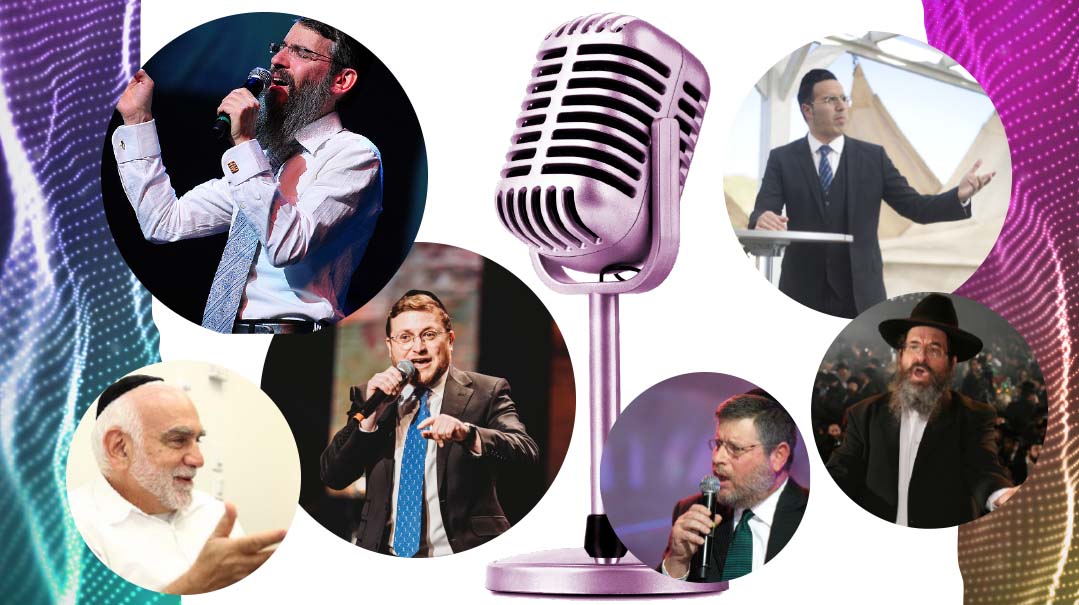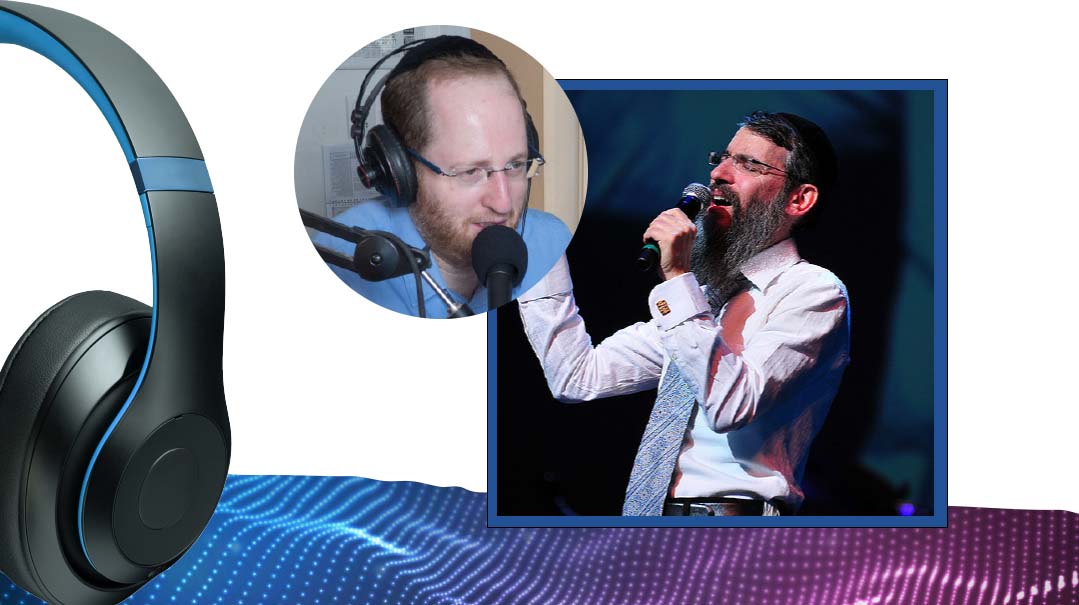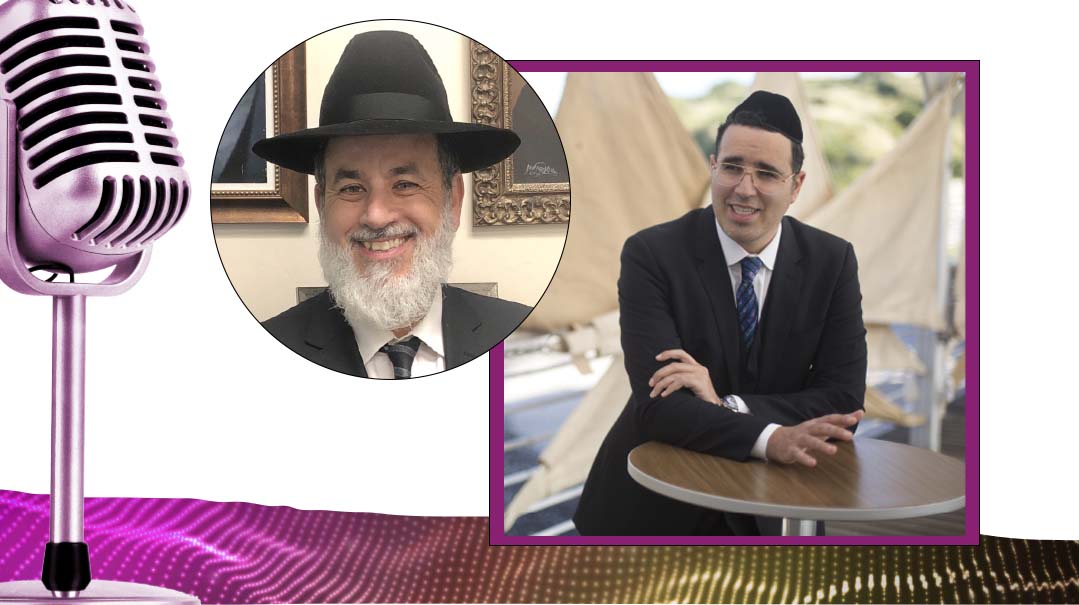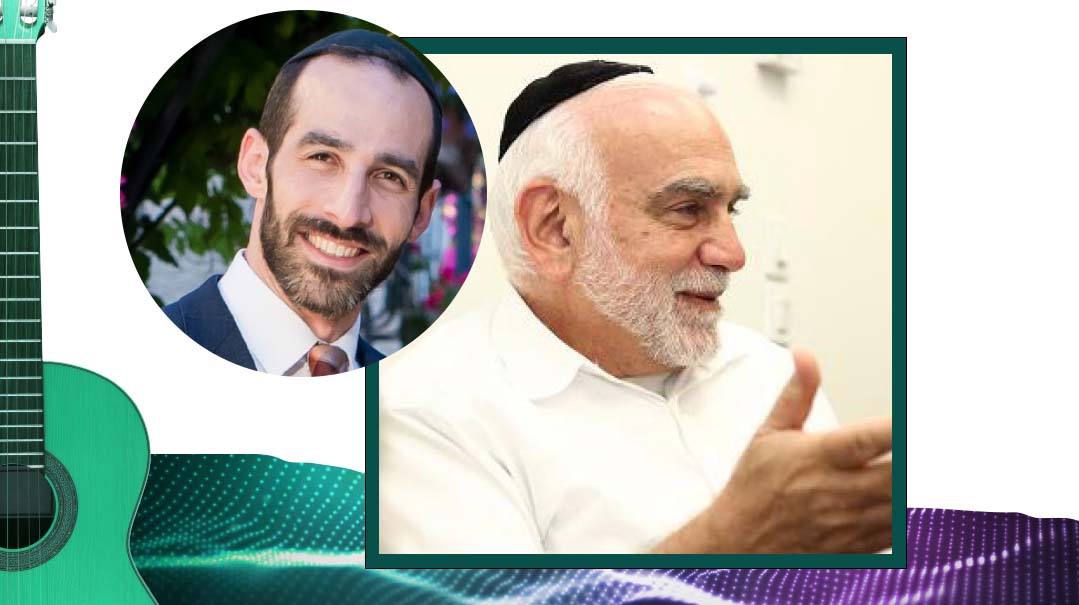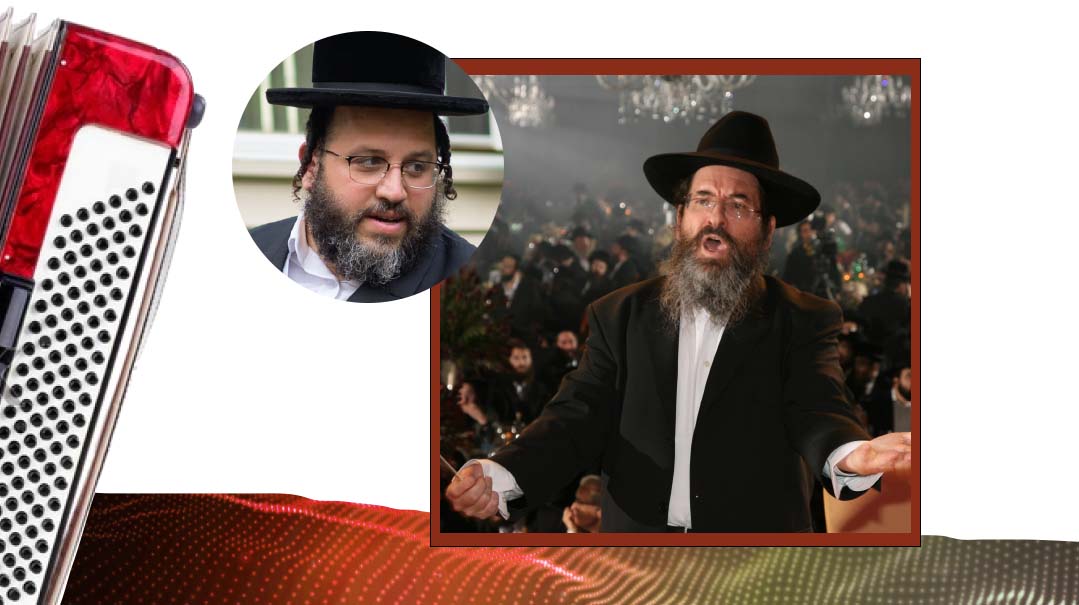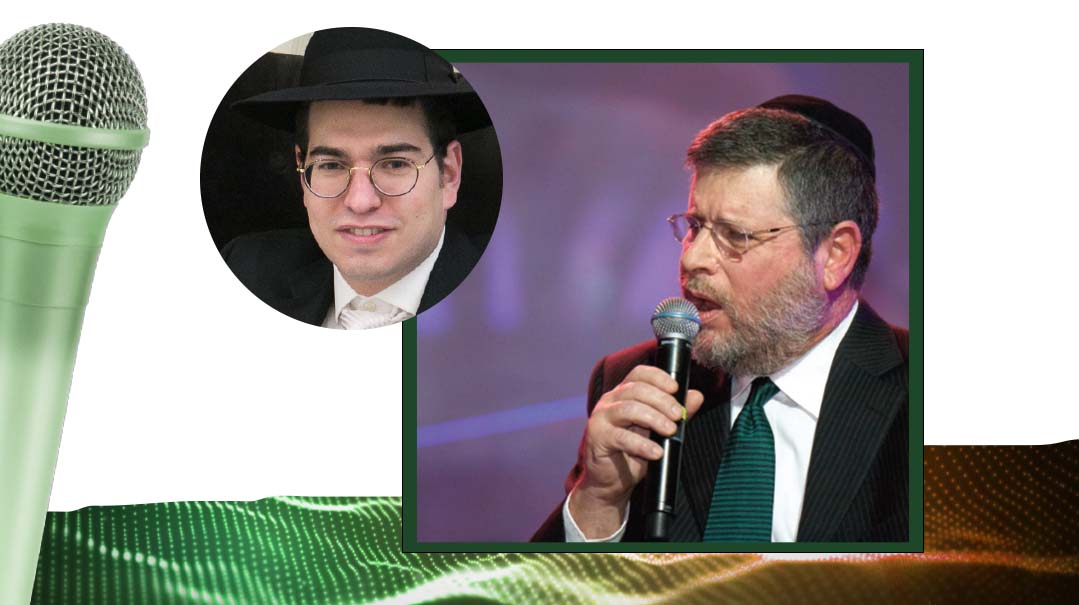Yossi Muller Invites Baruch Levine
| September 14, 2021"Raising Torah-true children was just becoming the new frontier, so 'Vezakeini' expressed the prayer on every parent’s lips"
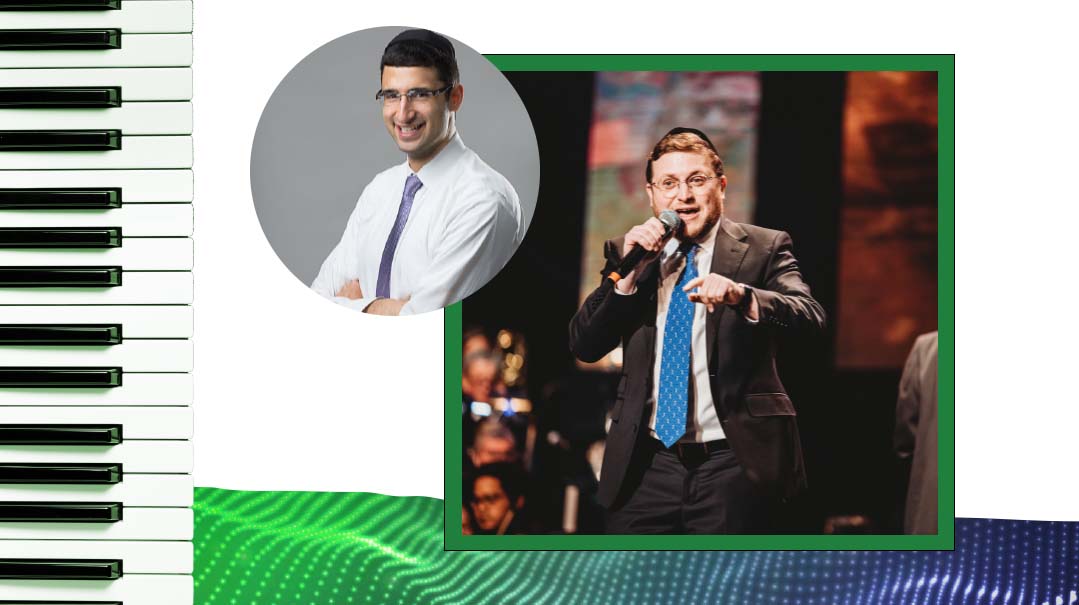
YOSSI MULLER, Lakewood nutrition coach and composer of such hits as Shwekey’s “Lo Yaavod Adam” and Beri Weber’s “Riboin,” invites BARUCH LEVINE to his succah
Why?
I chose Baruch because his skill and musical style are perfect for a succah setting. With his talent, there’s no need for sound systems or backup musicians. All he needs to do is show up with his guitar, and we can have a kumzitz. His music is mellow and his song themes are spiritual — perfect for a cozy succah experience. I’ve known Baruch since yeshivah days, and seeing his creative process in the works had an influence on my own musical development. He taught me how to compose music that is true to my individual style, yet appeals to the general population’s taste.
Yossi:
How do you know if a song you compose is worth putting on one of your albums?
Baruch:
I run it by people who are not musical — good friends and family — to see if they like it. A composer has to remember that 90 percent of people who buy music are non-musical, and songs have to resonate with the person on the street in order to become popular.
Yossi:
Are there any very famous songs of yours that you originally didn’t think would become so popular?
Baruch:
There was “Vezakeini”— you remember, it was just a back-up song we put on my first album in 2006 at the last moment. And then there is the newer “Vezakeini,” the Bonei Olam song. I was in a certain community recently, singing for a sick child, and his father told me that “Vezakeini” is his favorite song. I started to sing, and he said “no, your ‘Vezakeini!’” I was taken aback — wow, it’s out just 15 years and people think it’s been around since Adam Harishon! — but it seems that now the Bonei Olam song is all over, and it’s the one people mean.
Yossi:
Any thoughts on why the “old” “Vezakeini” became such a big hit?
Baruch:
Musically, “Vezakeini” is a very simple and hartzige song that’s easy to learn. I think that it became so big because it came on to the scene at a time when the challenges of raising children were rapidly increasing and were at the forefront of everyone’s consciousness. Raising Torah-true children was just becoming the new frontier, so it expressed the prayer on every parent’s lips.
Yossi:
What’s the best career advice you’ve been given?
Baruch:
Back when I was just starting to travel, Simcha Mann, well-known for his “out-of-town” wedding orchestra, gave me a great piece of advice. “When you leave town for a simchah or an event, fly in and fly out and get back to your family and daily routine first thing the next morning. That’s how you stay spiritually safe, grounded and normal.” I found that very true.
Yossi:
What’s the most trouble you’ve gotten into?
Baruch:
You mean in the music industry or in high school?
Yossi:
Do you experience stress before going on stage?
Baruch:
The truth is, yes. It’s gotten better, but I do still have performance anxiety. It’s healthy, in a way. You can’t treat a show like it’s a walk in the park, you can’t be too chilled. If you feel too easy about it, the energy won’t cut through to the audience. In that sense, you have to be a bit on edge.
Yossi:
What do you do if the audience looks bored during a performance?
Baruch:
I always have a back-up plan, and often we switch things up last minute. Of late, when someone wants to bring me in for a kumzitz and they say they only want nice slow songs, I already know that I need to prepare fast songs too. It’s not like it used to be, singing a beautiful slow song ten times over and everyone has their eyes shut, singing. I’ll bring along some English material to make a change, switch to oldies, or call someone up on stage.
It’s known in the industry that American audiences get bored the quickest. We are the most spoiled by near-total access to live music with brand-name singers, so it’s harder to involve them and bring out something special. In places where live top-quality Jewish music is a little less accessible, you can feel how the music is more appreciated. I just did a Zoom kumzitz in Australia, and even the on-screen energy was strong and palpable.
Yossi:
As a rebbi, do you use your music to inspire your talmidim to learn better?
Baruch:
Yes, a little bit, but probably not much more than any other rebbi. My goal is that over time, the sweetness of the Torah and the students’ mastery of it will generate inner satisfaction.
Yossi:
If you think of a song on Shabbos, how do you make sure you’ll remember it?
Baruch:
I forfeit my Shabbos nap and hum it until the end of Shabbos. It happened to me on Simchas Torah when the song “Chassan HaTorah” came to me during davening — I sang it the entire afternoon so I wouldn’t forget it.
Yossi:
Do you compose differently when you write a song for yourself than when you compose for someone else?
Baruch:
Yes. If another singer guides me as to what he is looking for in a song, I can let that influence me.
Yossi:
When composing a song, do you first come up with words or do you first come up with a tune?
Baruch:
Ninety-nine percent of the time the words inspire the song. I feel like the tune is a form of peirush hamilos on the words of the song. One exception was my song “Bircas Habayis.” The tune was originally written for the “Friendship” song on Lost in Lazerland.
Yossi:
When performing at a kumzitz, do you prefer playing piano or a guitar?
Baruch:
Piano, because I’m much better at it, and when you have to sing and read the audience and play at the same time, your instrument has to be second nature to you.
Yossi:
What do you do to keep your singing voice in shape?
Baruch:
Great question! It’s especially challenging as I’m a rebbi as well. Because of the strain, I’m constantly training my voice... and taking nutrition seriously and having a nutrition coach also helps.
(Originally featured in Mishpacha, Issue 878)
Oops! We could not locate your form.

